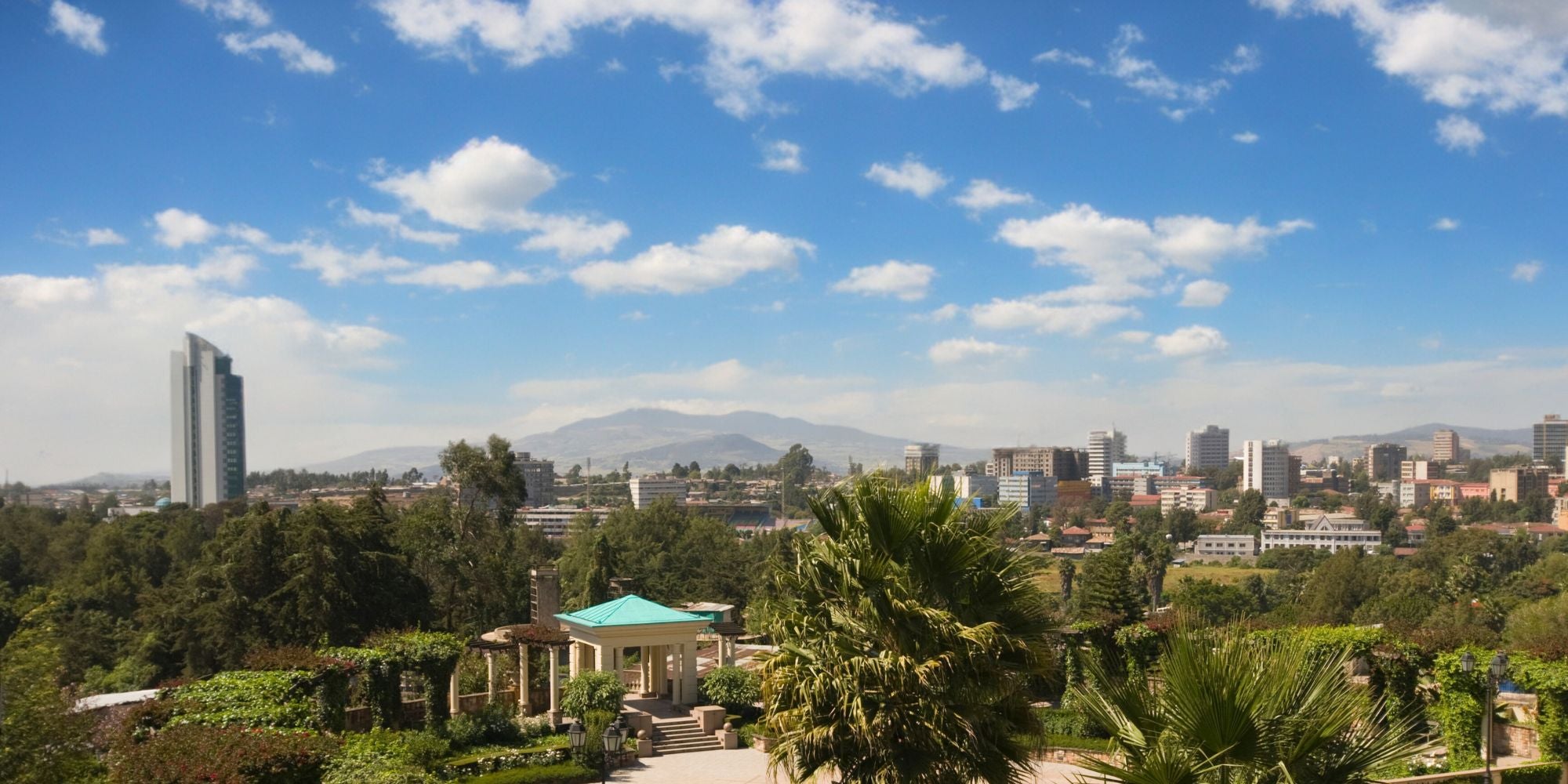
As the vibrant capital of Ethiopia, Addis Ababa is at very high elevations that takes many visitors by surprise. As a company based in the high-altitudes of Colorado, in this comprehensive guide we'll share everything you need to know about Addis Ababa altitude and Addis Ababa altitude sickness.
Addis Ababa sits at 7,726 feet above sea level. At this elevation, Addis Ababa is considered the third-highest capital city in the world.
Located at the foot of Mount Entoto, Addis Ababa ranges in elevation including the Bole International Airport at 7,631 ft (2,326 m) to the Entoto Mountains at over 9,800 ft (3,000 m).
Surprising to many, Ethiopia is one of the highest countries in the world at an average altitude of 4364 feet above sea level.
The Abyssinian Highlands is a high central plateau in Ethiopia between 4,232 to 9,843 ft (1,290 to 3,000 m). Ras Dashen is the highest mountain reaching 14,930 ft (4,550 m).
Yes, Addis Ababa is considered high altitude.
Compared to even Denver Colorado at 5,280 feet where many visitors experience issues with the altitude, Addis Ababa is over 2,000 feet higher.
According to Mountain Medicine, the elevation of Addis Ababa is categorized as high altitude.²
Yes, you can get altitude sickness in Addis Ababa.
Altitude sickness can start at 6,000 feet high, according to the University Of Michigan, and worsens the higher you go.³ Addis Ababa well surpasses this threshold at 7,726 feet.
Addis Ababa has approximately 5% less oxygen than at sea level, making it much harder to breathe and increases the chances of altitude sickness.⁴ It's best to be well prepared before beginning a trip to Addis Ababa.
Addis Ababa altitude sickness, also known as acute mountain sickness (AMS), is caused by ascending to high elevations too quickly due to the lack of oxygen.
This lack of oxygen, called hypoxia, can lead to various symptoms such as headache, nausea, and extreme fatigue. With the added combination of free radical damage from oxidative stress and dehydration, the conditions can further take a toll on your body.
Symptoms of Addis Ababa altitude sickness:
Altitude sickness in Addis Ababa can typically start within 6-24 hours upon arrival.
Visiting Addis Ababa, whether to get a taste of Ethiopian food and culture or exploring picturesque mountains, can put you on your back. As the highest capital city in Africa, most will experience troubles with altitude sickness.
As a company with over 10 years high-altitude experience in Colorado, we'll share our best tips to help naturally avoid altitude sickness in Addis Ababa.
5 Tips To Avoid Addis Ababa Altitude Sickness:
By following these five tips, you can increase your chances of avoiding altitude sickness and fully enjoy your time in Addis Ababa — including getting plenty of hydration, optimizing your sleep, limiting alcohol, avoiding strenuous activity, and supplementing glutathione.

Introducing Zaca, the chewable supplement that will help you bounce back faster so you can elevate your adventures. This remarkable formula is loaded with antioxidants including glutathione and other key nutrients help you replenish fast. The travel-friendly chewable will help you rehydrate, replenish, and recover. Made in on-the-go packets, simply take 2-4 chewables per day. Try Zaca's chewable supplement today and conquer your next trip.
SOURCES:
1. Addis Ababa Altitude
https://en.wikipedia.org/wiki/Addis_Ababa
2. Effects of high altitude on humans
https://en.wikipedia.org/wiki/Effects_of_high_altitude_on_humans
3. Oxygen Levels at Altitude
https://wildsafe.org/resources/ask-the-experts/altitude-safety-101/oxygen-levels/
4. Altitude Sickness University Of Michigan Health Service
https://uhs.umich.edu/travel-altitude-sickness
5. Why Do You Need to Drink a Lot of Water at a High Altitude?
https://www.livestrong.com/article/360485-how-to-train-for-high-altitude-hiking
6. Sleep: The Secret Ingredient of Injury Recovery
https://www.orthocarolina.com/media/sleep-the-secret-ingredient-of-injury-recovery
7. High altitude and oxidative stress
https://pubmed.ncbi.nlm.nih.gov/17482529/
8. Oxidative Stress and Diseases Associated with High-Altitude Exposure
https://www.ncbi.nlm.nih.gov/pmc/articles/PMC8868315/
9. Effect of high altitude (7,620 m) exposure on glutathione
https://pubmed.ncbi.nlm.nih.gov/11320641/
Copy the coupon code & use it at checkout